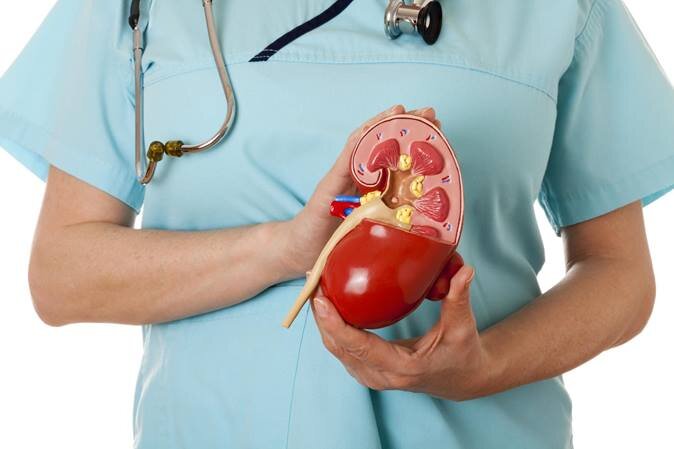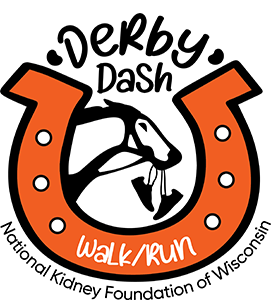Stages of Chronic Kidney Disease & How to Prevent It
Doctors measure how well your kidneys filter waste from your blood by estimating your glomerular filtration rate, or eGFR. Your eGFR is a number based on your blood test for creatinine, a waste product in your blood. The stages of kidney disease are determined by how well the kidneys function to filter waste and extra fluid out of your blood. After determining your filtration rate, chronic kidney disease is indicated by 5 stages of kidney damage.
*NOTE: This blog is designed to be an informative resource regarding the topic of Chronic Kidney Disease Stages with tips on how to prevent kidney disease from developing. Each person and patient are different, please talk with your doctor regarding the right treatment plan for you and any kidney health questions you might have.

STAGES OF CHRONIC KIDNEY DISEASE
Stage 1, an eGFR of 90 or greater means. This filtration rate means your kidneys are healthy and working well but have signs of mild kidney damage including protein in your urine or physical damage to your kidneys.
Stage 2, an eGFR between 60 and 89. Your kidneys are healthy and working well but have you have other signs of kidney damage including your urine or physical damage to your kidneys.
The first two stages can be slowed down by taking control of your blood sugar, blood pressure, eating healthy, working out, and stopping smoking.
Stage 3, an eGFR between 30 and 59. These levels indicate your kidneys aren’t working as well as they should and have some damage. Stage 3 is separated into two stages; Stage 3a, an eGFR between 45 and 59 and Stage 3b, an eGFR between 30 and 44. Stage 3 warning signs may include hands and feet swelling, back pain, and less urinating. Stage 3 complications include high blood pressure, anemia, and bone disease.
Slowing down Stage 3 includes all the same healthy lifestyle choices as the first two stages as well as a visit to a specialist kidney doctor called a nephrologist to help set up a treatment plan.
Stage 4, an eGFR between 15 and 29. In the last stage before kidney failure, your kidneys are moderately or severely damaged and are not working as they should. Stage 4 kidney disease symptoms include hands and feet swelling, back pain, and urinating more or less. Complications for Stage 4 include high blood pressure, anemia, and bone disease.
At this point, you’ll need to have regular appointments with a nephrologist who will make a treatment plan that is right for you, get help from a dietitian, and possibly take special blood pressure medicines. This is the last stage to prepare for Stage 5, kidney failure.
Stage 5, an eGFR less than 15. At this point, you’re close to failure or have complete kidney failure. When this happens, waste builds up in your blood and will make you sick. Some symptoms of kidney failure include all the signs of the previous stages including itching, muscle cramps, throwing up, no appetite, trouble breathing and sleeping.
If your kidney’s fail, you’ll need to begin dialysis to help clean your blood and prepare for a kidney transplant from a healthy donor or else you’ll need dialysis for the rest of your life.
HOW TO PREVENT
Chronic Kidney Disease is commonly brought on by diabetes and high blood pressure. Working with your doctor and possibly a dietitian can help keep your blood sugar and blood pressure under control. Make sure to keep up with regular annual doctor check-ups to stay on top of any early warning signs.
Along with some professionals help, choosing a healthy lifestyle can lower your risk for kidney disease; starting with a low-salt, low-fat diet, exercising at least 30 minutes daily, not smoking, and limiting alcohol consumption, all are great ways to help yourself!
At Midwest Nephrology Associates, we provide care and guidance for patients with kidney disease. Our doctors will determine the best dialysis treatment plan for you and we have three transplant nephrologists with training and expertise in the field of kidney transplantation. Contact us at any of our clinics across Milwaukee, Waukesha and all of Southeast Wisconsin with any questions or concerns.
CONTACT MIDWEST NEPHROLOGY ASSOCIATES TODAY
Have any questions or concerns? Our dedicated team of physicians and certified staff are here to help answer all your questions and can help set up an appointment for you or a loved one. Contact Midwest Nephrology Associates for more information on Kidney Cancer and for help finding a treatment that works best for you.


